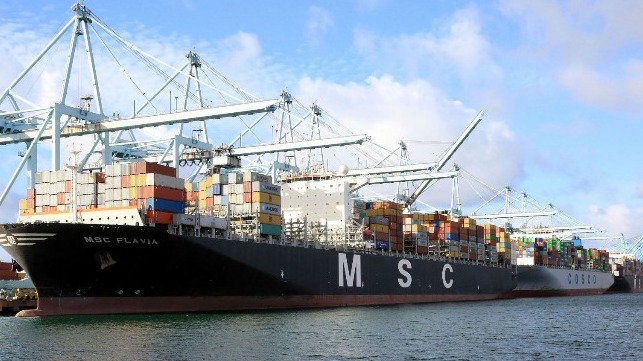American Ports Voice Concern Over Trade War

The American Association of Port Authorities (AAPA) has written to U.S. Trade Representative Ambassador Robert Lighthizer urging him to carefully consider the negative impacts that trade sanctions and remedies can have on port and other trade-related American jobs nationwide, including the effects of likely retaliatory responses from U.S. trading partners.
“We support and encourage steps focused on expanding exports rather than creating new import
restrictions,” states the AAPA in the letter. “With today’s worldwide supply chain, American manufacturers, farmers and businesses often rely on ports to handle the raw materials and semi-finished components needed for production here in the United States. These imports enable U.S. manufacturers to export their products and enhance their international competitiveness.”
Creating and sustaining American jobs is a top priority of President Trump, a worthy goal that all can support, states the letter, noting that seaport cargo activity accounts for over one quarter of the U.S. economy, generates nearly $4.6 trillion in total annual economic activity and is responsible for $321 billion annually in federal, state and local tax revenues. The cargo moving through U.S. ports supports more than 23 million American jobs. For every $1 billion in exports shipped through U.S. seaports, 15,000 jobs are created.
A 2016 AAPA survey showed that ports and their private sector partners plan to invest significantly in improving port infrastructure by spending $155 billion between 2016 and 2020. As businessmen, however, they are concerned about making these investments in an unstable trade environment. Eliminating that uncertainty is especially important as this Administration seeks to find partners to build America’s infrastructure, says the AAPA.
“America has always been a trading and maritime nation. It has made our country strong and a world leader in international trade. We believe it’s vital that the U.S. economy and jobs can continue to benefit from jobs generated by trade, both exports and imports.”
The letter did not mention any specific trade sanctions.
